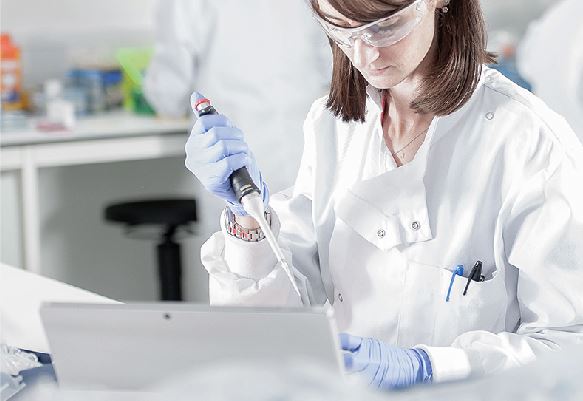Avacta Group plc (LON: AVCT), the developer of Affimer® biotherapeutics and reagents, has announced that it has demonstrated initial proof-of-concept for its proprietary new class of drug conjugate, “TMACTM”, in a preclinical animal model of cancer.
Avacta’s TMACTM drug conjugates combine the Company’s two proprietary platforms, Affimer® immunotherapies and pre|CISIONTM chemotherapies, in a single drug molecule.
The first TMACTM drug conjugate (AVA04-VbP) combines an Affimer PD-L1 checkpoint inhibitor with an I-DASH drug warhead. The TMAC molecule is designed to target the release of its drug warhead in the tumour microenvironment, inflaming the tumour locally in such a way that it attracts the immune system to further attack the cancer, whilst the Affimer immunotherapy part of the TMAC molecule supports this secondary immune system attack.
In a mouse tumour model, the Company has shown that the first TMAC drug conjugate (AVA04-VbP) outperforms Bavencio (avelumab), a marketed PD-L1 antibody inhibitor developed by Merck and Pfizer. Animals treated with AVA04-VbP showed a significant reduction in the rate of tumour growth with respect to those treated with Bavencio.
A considerably higher level of the released I-DASH warhead was measured in the tumours compared with very low levels in the blood. This indicates that the healthy tissues in the body are being spared exposure to the highly toxic warhead, which is central to the TMAC mechanism of action, permitting the use of highly potent cancer-killing warheads.
Dr Alastair Smith, Chief Executive of Avacta Group, commented:
“These in vivo efficacy and distribution data demonstrate initial proof-of-concept for TMAC drug conjugates and represent an important milestone for the Company.
We continue to receive significant commercial interest in the TMAC concept, so I am delighted that we have been able to demonstrate superior efficacy and targeting of the warhead to the tumour with the first TMAC that we have tested in animals.
This is hugely encouraging for the TMAC programme and I look forward to keeping the market updated on future developments.”







































